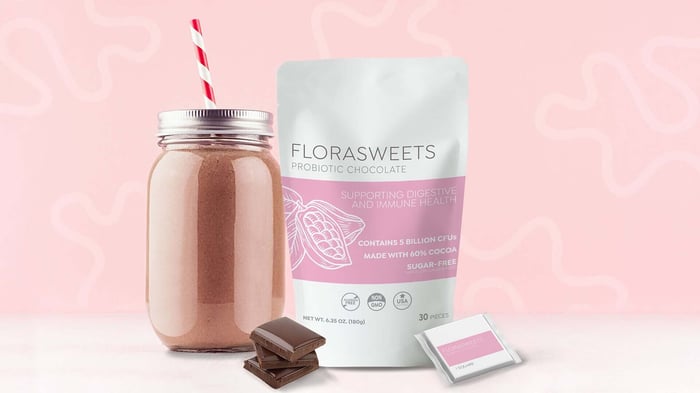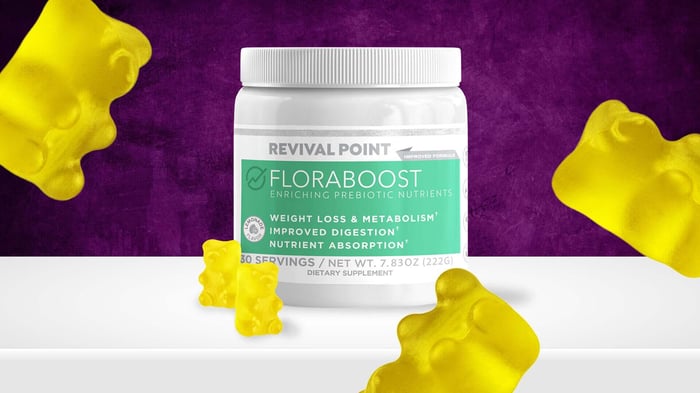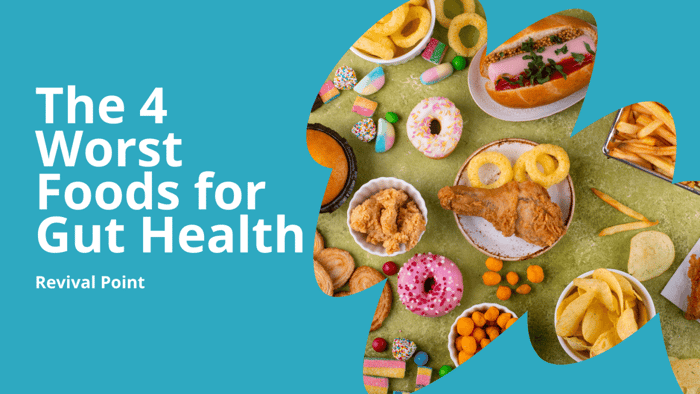Our team of nutrition experts shares the dangers of common cooking oils and the risks of a diet high in omega-6 fatty acids. Plus: which oils should you actually cook with?
Heart disease is the leading cause of death for American adults, and one of the major causes of cardiac trouble is the choices we make about the oils that we use to cook with. While there are many options, the most common ones are vegetable oils and seed oils– but as you will see, many of these contain chemical compounds that can cause cardiac issues and gut issues!
Today, we are going to talk about the worst oils to cook with. All of these oils have common traits, like an abundance of Omega-6 fatty acids and lectins.
Avoid Cooking With Seed Oils
Most seed oils sold on the market are filled with an Omeg-6 short fatty acid chain, called linoleic acid. Omega-6 fatty acids are a type of polyunsaturated fat found in cooking oil. The term "omega-6" refers to the position of one of the bonds in the carbon chain of the molecule, which distinguishes it from Omega-3 and other fatty acids.
Make no mistake: your body needs some Omega-6 fatty acids. They are important for various physiological processes and play a role in maintaining overall health. They are structural components of cell membranes, helping to maintain their integrity and fluidity. They are also involved with controlling inflammation, blood clotting, and immune responses.
In moderation, Omega-6 is considered generally safe. The problem is that the American diet has a hard time with moderation. We tend to have an atypical, unsafe amount of Omega-6 in our diets. While studies suggest that a 1:1 ratio of Omega-6 to Omega-3 is ideal for cardiovascular health, the typical American diet has a 15:1 to 16:1 ratio of Omega-6 to Omega-3. There is a hypothesis that this may lead to an increased risk of heart disease based on the way Omega-6 interacts with cholesterol as it oxidizes.
The primary omega-6 polyunsaturated fat found in vegetable oils is called linoleic acid. When linoleic acid oxidizes in the body, some major negative health outcomes can occur. First, oxidized linoleic acid can create inflammation and oxidative stress, which can damage cells and impair their normal functions.
Secondly, oxidized omega-6 fatty acids can form lipid peroxides, which are unstable compounds that can disrupt cell membranes, affect cellular signaling, and contribute to the development of atherosclerosis and other cardiovascular conditions.
Atherosclerosis is a disease that occurs when sticky plaque builds up inside your arteries, causing them to narrow. It can occur anywhere in the body, and frequently occurs in the heart.
Linoleic acid also creates problems when it interacts with cholesterol. When cholesterol binds with linoleic acid, it also oxidizes. It is suggested that eating more linoleic acid increases the oxidation of cholesterol, which makes atherosclerosis more severe and increases the risk of coronary heart disease.
What Are Lectins in Seed Oils?
Lectins are another risk of cooking oil. They are proteins found in many plants that bind to carbohydrates. In nature, they help defend plants– but in the human gut, lectins cause problems. They resist being broken down, and can produce nausea, vomiting, diarrhea, and other side effects.
Additionally, lectins can interfere with the absorption of minerals, especially calcium, iron, phosphorus, and zinc. They also bind to cells in the digestive tract, which negatively affects the growth of your gut microbiome. They bind to cells for a long period of time and can potentially cause autoimmune responses.
So with the risks of too much Omega-6 and lectins in mind, let us now consider cooking oils.
Canola Oil
Canola oil is one of the most common forms of cooking oil available, which is part of the reason that it causes health problems. Canola oil is a hyper-processed oil that is described as an “RBD” oil. This stands for refined, bleached, and deodorized, which describes the manufacturing process. RBD oils are produced by crushing plant material and then extracting the oil with a low-boiling solvent, usually hexane, to obtain the remainder of the oil.
According to the EPA, hexane is not classifiable as a carcinogen, based on a lack of data concerning carcinogenicity in humans and animals. This implies that we don’t actually know what the role of hexane may be in certain health conditions like cancer.
Additionally, canola oil has a 2:1 ratio of Omega-6 to Omega-3. Since it is found in so many foods, it is considered a disproportionate source of Omega-6.
Corn Oil
Corn oil has essentially no Omega-3 fatty acids and only has Omega-6. Corn oil is also an RBD oil and undergoes the same process as canola oil. Another major problem with these types of oils is the presence of glyphosate, more commonly known as Roundup. This pesticide is toxic to humans, and can cause numerous problems including increasing your risk of cancer. A recent study shows that exposure to glyphosate can increase your risk of cancer by 41%, making oil from crops treated with glyphosate oils to avoid.
Cottonseed Oil
Another unbalanced oil, cottonseed oil contains more Omega-6 fatty acids than Omega-3 fatty acids. Cottonseed oil is often used as a preservative and is often found in a partially hydrogenated form, which contributes to high cholesterol. This is commonly found in shelf-stable snack foods like snack cakes, cookies, and chips– so you can avoid this oil by avoiding these foods.
Grapeseed Oil
Grapeseed oil has a high polyunsaturated fat content, but this is primarily Omega-6 fatty acids. It is another RBD oil, although you can get it cold-pressed, which is less-processed. Grapeseed oil is frequently used in takeout and restaurant food, so this may be a source to consider in your diet.
Peanut Oil
Peanut oil is one of the oils high in lectin that should be avoided. Peanut oil is extra atherogenic, which means that it contributes to atherosclerosis. While treatments such as vigorous washing can reduce that lectin content, this is not part of typical peanut oil production. Studies suggest that the natural lectin found in peanut oil contributes to the impacts it has on your heart.
Safflower Oil
Safflower oil can be found in two forms. One form has a high Omega-6 content, up to 75% of the oil. The other form has been bred to have a concentration of up to 75% oleic acid, which is Omega-9 fatty acid. While Omega-9 fatty acids are better for you, this oil is still risky. The Omega-9 version may not be available in all markets.
Soybean Oil
Soybean oil is another common oil, but like many other vegetable oils, it is typically treated with glyphosate as it grows. Typical soybean oil is very high in Omega-6 fatty acids. However, there are genetically modified soybeans that have been bred to produce Omega-3 fatty acids and not as much Omega-6 fatty acid. Check the label on soybean oil before you use it to see what the fatty acid content is.
Sunflower Oil
Sunflower oil is loaded with lectins and sprayed with glyphosate during the growing season. This makes it less safe for your heart than other types of oil.
So now that you know the oils not to cook with, what oils should you use?
Is Smoke Point Important When Choosing an Oil?
Many people think that the smoke point is important when choosing a cooking oil for cardiovascular health, but it really isn’t. Take olive oil, for instance. Olive oil is a heart-healthy oil with a low smoke point. But it isn’t the smoke point that makes it good for you! Even if your oil smokes in the pan, that doesn’t mean that the oil has gone bad.
The main concern with oil’s smoke point isn’t whether or not it’s smoking, but whether or not it has oxidized. Oxidized oil is rancid oil, and rancid oil is terrible for your health. The fats begin to break down and form inflammatory compounds that can make you sick. The more oil can resist reacting with oxygen and breaking down, the better it is for cooking.
Other Ways To Avoid Unhealthy Oils
The easiest way to control what oil you are exposed to is to choose good oil when cooking for yourself. But what about other sources of oils? It’s all about being careful with your diet.
There are lots of foods that contribute to poor health, including poor gut health. For your health, you should learn how to read food labels. Generally for heart health, you want to avoid carbohydrates, especially high-carb processed foods. Highly processed foods, in general, can be a problem since they often contain trans fats and hydrogenated oils to stabilize and preserve foods. These foods are highly palatable and tasty, but they aren’t great for your heart.
You can also just ask restaurants what oils they use to cook with when you’re considering takeout or dining out. Call ahead and ask; if the person answering doesn’t know, ask to speak to the kitchen. Due to allergen awareness, restaurants will certainly be able to tell you what they’re using.
When it comes to choosing cooking oils that promote your health, it's crucial to steer clear of the harmful effects of seed oils, particularly those high in omega-6 fatty acids like linoleic acid, which can lead to various health issues. Instead, opt for the following healthier cooking oils to enhance your well-being:
Healthy Cooking Oils To Reduce Inflammation :
Extra Virgin Olive Oil: With a low smoke point, but a high resistance to oxidation, extra virgin olive oil is a fantastic choice. Its monounsaturated fats offer heart-protective benefits.
Perilla Oil: Derived from Korea and China, perilla oil is rich in alpha-linolenic acid (ALA), an omega-3 fatty acid that supports overall health.
Coconut Oil: Suitable for medium-heat cooking, coconut oil has medium-chain triglycerides (MCTs) that are metabolized differently, offering potential benefits.
Flaxseed Oil: An excellent source of ALA, flaxseed oil is best used cold, such as in salad dressings or drizzled over dishes.
When selecting cooking oils, remember to assess the carbohydrate content of the overall dish, especially in processed or ultra-processed foods. By making informed choices and avoiding harmful seed oils, you can elevate your culinary creations while prioritizing your health and well-being.
Furthermore, it's important to consider how your dietary choices impact your gut health. Inflammatory oils, often found in unhealthy cooking oils, can compromise your gut lining and lead to bloating, discomfort, and digestive problems. To counteract these effects and promote a healthy gut, you might want to consider incorporating Total Gut Revive into your routine. Specially formulated with ingredients shown in studies to support a healthy gut lining and reduce bloating and gas, this supplement can make a noticeable difference in your digestion within a week or two. By choosing the right cooking oils and supporting your gut health, you're not only enhancing the flavors of your meals but also prioritizing your overall well-being.
For more information about how to protect your health through eating, check out the Gut Revival blog.





